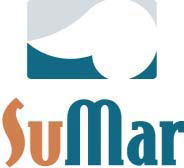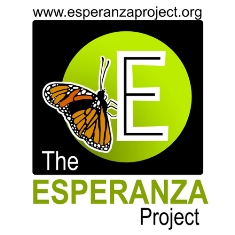WWW.MELONCOYOTE.ORG
Journalism to Raise Environmental Awareness
Grassroots Bulletin on Sustainable Development in Northwest Mexico
DIRECTORY
Collaborators in this issue
Cover
Soledad Lojd
Comentary
Juana Meraz
Edith González
Eva Terán
Leticia López
Environmental Journalism
Talli Nauman
Agustín del Castillo
Baja California
Alan Alexis Valverde Amador
Kent Paterson
Arizona
Talli Nauman
Sonora
Rosa María O Leary
Isabel Dorado
Sofía Vargas
Nayeli Salcido
Sinaloa
Raquel Zapien
Nayarit
Ernesto Bolado
Baja California Sur
Debra Valov
Regional
Kent Paterson
Fabian Carvallo
Editorial Board
Talli Nauman (San Ignacio, B.C.S.)
Debra Valov (Mulegé, B.C.S.)
Griselda Franco Piedra (Guaymas, Son.)
Asesores Vol. 9, No. 1
Ernesto Bolado
Dahl McLean
Translations Vol. 9, No. 1
Debra Valov
Tracy Barnett
Gloria Wilson
Lis Maria Arévalo Hidalgo
Scott Powell
Acknowledgements
Lasecomujeres.org
SuMar - Voces por la Naturaleza
Proyecto Esperanza
Red Mexicana de Periodistas Ambientales
Design
Debra Valov; Mulegé, B.C.S.
Contact
meloncoyote [at] gmail.com
Facebook

Melóncoyote is a product of Journalism to Raise Environmental Awareness (abbreviated PECE in Spanish), an independent communications project founded in 1994 with the support of the MacArthur Foundation.
The viewpoints expressed are solely those of the authors. This work may be reproduced in part or whole, with images and illustrations, as long as the publication source and authors are cited.
|
Labor of love in the era of Covid-19
The co-director of Journalism to Raise Environmental Awareness, Miguel Angel Torres Guerrero (1956-2019), left us with the task of publishing at least one more issue of Meloncoyote. Fulfilling his last wish is the purpose of this edition, presented here as a labor of love.
Publication intersected with the worldwide outbreak of the novel viral disease Covid-19, a pandemic that led to closing the international border that links our Northwest Mexico region with the neighboring states of Arizona and California.
With all "non-essential" crossings thwarted indefinitely to minimize contagion, the outlook was uncertain for family reunions, tourism, agriculture, business, services, and environmental cooperation in the border area. With public schools temporarily closed to protect health, our March 2020 Meloncoyote workshop on bilingual citizen investigative journalism for resilience was postponed until further notice by the Colegio de Bachilleres III in Ciudad Obregón, Sonora.
Previously, at the 2019 editorial meeting, held in Mexico City in Noviembre, we discussed the changes in the mass communication industry over the 15-year period of the newsletter project. With the advent of social media and the age of access to information on the internet, the publication is no longer the sole outlet for sustainability coverage in our region. Yet its usefulness as a training tool for independent investigative journalism is as invaluable as ever, we concluded.
Members of the Mexican Environmental Journalists Network promised to contribute articles to the newsletter as a tribute to their late friend Miguel Angel, who was one of the founders of the national organization. However, like in previous years, the goodwill of volunteers ended up being bested by their other duties, putting the editorial staff on the spot and delaying the outcome.
The lack of grant funding for production expenses since 2015 compounded the challenges for the workshop and publication.
The upshot of this sequence of events is that Meloncoyote plans to publish only in connection with future workshops, to the effect that participants in training sessions will still have a guaranteed forum in which to disseminate their media products. Meanwhile, we will maintain our presence through social media posts @meloncoyote.
We are grateful to our talented, hardworking volunteers, as well as our past funders. We are proud of our record and look forward to more future successes for the conservation-minded current and future generations of the Northwest.
Why Melóncoyote?
Our project dates back to 1994, when “Journalism to Raise Environmental Awareness” (abbreviated PECE in Spanish) was formed. In 2004, PECE played a role in the founding of the national professional organization The Mexican Environmental Journalist’s Network. In 2005, when we started the first grassroots journalism project in the Gulf of California, our team chose the name Melóncoyote because it is a species emblematic of the region at the heart of our mission.
The Coyote Melon, known in Spanish as melón coyote or calabacilla (which includes the species Cucurbita palmata, C. cordata, C. digitata and C. foetidissima) is a wild perennial gourd that is resistant, versatile, beautiful, useful and native to the sandy soils that characterize the Gulf of California zone. The coyote melon is found in the region’s seven states: Baja California Sur, Baja California, California, Arizona, Sonora, Sinaloa, and Nayarit. A vine, Coyote Melon has an immense root that guarantees its survival against hard times while its long stems serve to anchor the soil in fragile areas.
The indigenous peoples of the area, bearers of the region’s traditional wisdom, describe the plant and how it is used. As medicine, it is bitter, but effective. As a musical instrument, it makes a beautiful rattle. Its seeds provide oil and a flour which contains a high level of protein. Its shell is ideal as a container for all matter of things. Because of all of these traits, and because it is an integral part of the food chain and one of the principal foods of the coyote, they named it “Coyote Melon”.
Our team of collaborators chose this name because it is a plant found throughout the region, and in doing so, we wanted to stress our intention to create a large-scale communications medium, capable of spreading (on a regional level) the news about efforts being made towards sustainability. With this symbolic name to represent our work, we are sending a clear message about our respect for the land and the sea, as well as for the ancestral cultures and customs of the region. We see the establishment of this medium for education and dissemination as something urgent, given the idiosyncrasies of the region. We have conceived this project as being an integral element of the environment, something positive like the Coyote Melon.
Faced with the challenges of growth in the region—a low population density, its recent political incorporation into the national government, a high degree of natural attraction and its proximity to the strong investment sector of the United States—we understand the implications of the pressures for development. Dealing with these challenges and pressures will require informed citizens who have the chance to participate in the decisions that affect their land, water, air, biodiversity and their future. We invite others to join with us, to participate in building this medium and to fight for a stable future for the region.
All work on behalf of Melóncoyote is voluntary.




